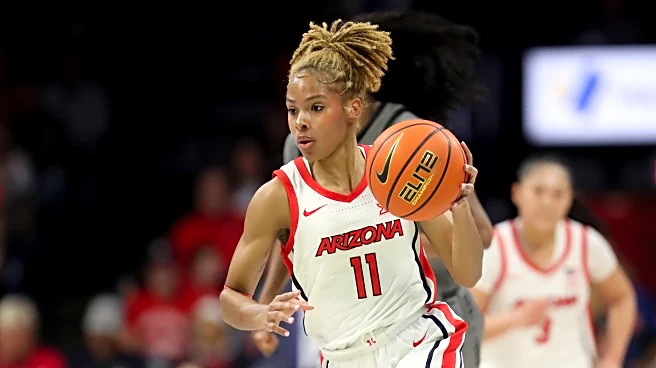What's Happening?
Educational leaders with extensive experience have developed Instructional Leadership Collectives (ILCs) to address the isolation often felt by leaders in the education sector. These collectives are designed to facilitate collaboration among various educational
leaders, including teacher leaders, instructional coaches, principals, and superintendents. The ILCs focus on collaborative inquiry using structured protocols to improve leadership practices and system alignment. Facilitators play a crucial role in guiding these collectives by anchoring discussions to the problem of practice, illuminating evidence of impact, and elevating understanding to support better student outcomes. The initiative aims to foster a culture of collective ownership and instructional coherence, ultimately leading to improved academic growth for students.
Why It's Important?
The introduction of Instructional Leadership Collectives is significant as it addresses the common issue of isolation among educational leaders, promoting a more collaborative and supportive environment. By engaging leaders in structured inquiry and shared learning, ILCs have the potential to enhance leadership practices and improve educational outcomes. This initiative can lead to more coherent and equitable instruction across classrooms, benefiting students by providing them with rigorous and consistent learning experiences. The focus on collective ownership and shared accountability among educators can drive systemic improvements and foster a culture of continuous learning and adaptation, which is crucial for addressing diverse student needs and closing achievement gaps.
What's Next?
As Instructional Leadership Collectives continue to develop, facilitators will monitor both formative and summative data to assess the impact of these initiatives. The ongoing collection and analysis of demographic and perception data will help identify areas for improvement and guide future actions. Facilitators will also engage in self-reflection to understand the growth and challenges faced by each collective, allowing for targeted support and interventions where necessary. The success of ILCs may inspire similar collaborative models in other educational contexts, potentially influencing broader educational policies and practices.
Beyond the Headlines
The establishment of Instructional Leadership Collectives highlights the importance of professional development and continuous learning for educational leaders. By challenging assumptions and encouraging deep reflection, ILCs can lead to shifts in leadership practices that prioritize student-centered approaches and equity. This initiative also underscores the need for systemic change in education, where collaboration and shared responsibility are key to achieving sustainable improvements. The long-term impact of ILCs may extend beyond immediate educational outcomes, contributing to a more inclusive and adaptive educational system that better serves diverse communities.
















